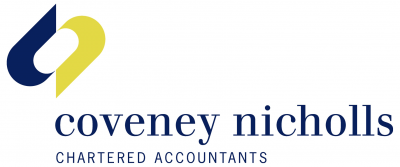Managing a rental property can feel like spinning plates – it involves many tasks that require simultaneous attention.
Keeping track of invoices, expenses, rent collections, and financial reports can be overwhelming, especially if you’re renting multiple properties.
Thankfully, accounting software for landlords can simplify your life by bringing all these elements together.
Let’s explore the best rental property accounting software.
Understanding your needs
Before you even start looking at software packages, it’s important to understand what you need.
Are you a single-property landlord, or do you manage a portfolio of properties? Do you handle everything yourself, or do you have an accounting team?
Do you need something that integrates seamlessly with other business applications? And do you need to access it on the go? (Many major accounting software packages come with mobile apps.)
Keep the answers in mind as we explore the big three: Xero, Sage, and QuickBooks.
The big three: Xero, Sage, and QuickBooks
Xero
Xero is one of the most popular accounting platforms, with some 3.7 million users across 180 countries. It’s robust and easy to use with heaps of integrations – over 1,000, to be more precise.
- Ease of use: Even if you’re not a numbers person, Xero’s intuitive layout and straightforward dashboards make it easy to grasp the basics quickly.
- Automation: Xero can automatically import transactions from your bank accounts, saving you time on data entry.
- Integration: It can integrate seamlessly with a wide range of third-party applications. This is beneficial if you’re already using other tools for property management.
- Accessibility: With cloud-based access, you can manage your accounts from anywhere in real time – perfect for landlords who are always on the move.
Sage
Sage has been in the game for a long time and offers many features designed for more complex accounting needs. This is a highly scalable platform that can handle larger portfolios.
- Robust reporting: Sage excels in reporting capabilities. It allows for in-depth analysis, which is great for those with multiple properties and varied income streams.
- Customisation: It offers a highly customisable platform, allowing you to tailor the software to the unique needs of your rental business.
- Compliance: With regular updates, Sage keeps you compliant with the latest financial regulations, a feature handy for businesses operating in multiple countries.
QuickBooks
QuickBooks is another strong contender, and is perhaps easier to use for those with a small number of properties who need a platform to do the heavy lifting.
- User experience: QuickBooks offers a clean, easy-to-navigate interface.
- Invoice customisation: It provides detailed invoice customisation, allowing you to effortlessly create professional, branded invoices.
- Expense tracking: The software’s robust expense tracking feature lets you easily categorise and monitor property-related expenditures.
Key considerations for choosing rental property accounting software
It’s worth mentioning that, even if you do happen to choose the wrong rental property accounting software, they’re subscription-based and generally offer free trials – so switching is pretty simple.
But how do you determine which software suits your needs best? Here are some key considerations:
Budget: affordability matters
Evaluate your financial capacity
Before anything else, understand what your budget allows. All three platforms have various pricing options, so choosing one that aligns with your financial resources is essential.
Free trials and discounts
Many software platforms offer trial periods or introductory discounts. Take advantage of these to test the software’s capabilities without investing everything into it.
Scalability: planning for the future
Anticipate your growth
If you want to expand your property portfolio, ensure your chosen software can accommodate this growth.
Sage is probably most robust for complex accounting needs, but they all tick the necessary boxes to handle multiple rental income streams.
Summary
Choosing the right software is crucial for efficiently managing your rental portfolio. It’ll make life easier and uncover avenues for cutting costs and improving management. It’ll also keep you in line with the upcoming rules for Making Tax Digital.
Whether you go for Xero’s user-friendly interface, Sage’s comprehensive reporting tools, or QuickBooks’ flexibility, the ‘big three’ are pretty closely aligned.
Remember, the right software is an investment that pays off in the long run, simplifying your accounting and allowing you to focus on what you do best: growing your property portfolio.
Get in touch for advice on choosing and setting up rental property accounting software, or find out more about our services for landlords.

